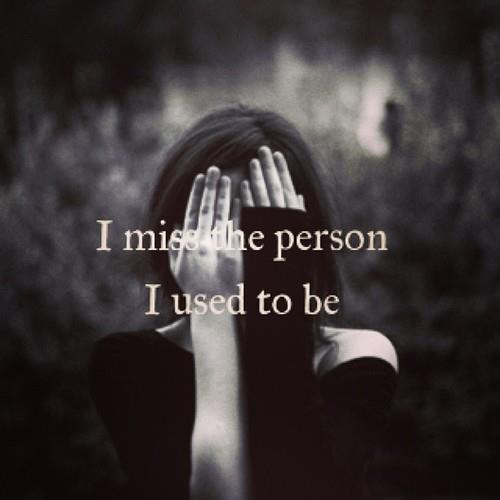
.
image source Pinterest
Emotophobia is the fear of unpleasant emotions, not to be confused with emetophobia, the fear of vomiting.
.
There is little online about emotophobia, so I thought this would be a great topic to write about. People that suffer from emotophobia need to understand what it is and what causes it. It is the first step to healing.
.
The few articles I found offered the suggestion to “stop treating negative emotions as if they are your enemies and can harm you.”
.
This implies that emotions themselves cannot harm you. But abusive situations are different from normal ones. There are two basic reasons that people who grew up with abuse can end up with emotophobia.
.
The narcissistic parent does not allow their child to be an individual. When the child expresses their feelings and thoughts that are different that the parent wants them to be, the parent reacts with punishment of some kind.
.
Emotional punishments are typical from narcissistic parents, when the child asserts their boundaries, their feelings, or otherwise asserts their identity as an individual.
.
Living with a parent that can suddenly explode, means to be on constant vigilant duty to protect the parent from becoming upset. In some cases the child has to take on the parenting role.
.
Part of keeping the parent from becoming upset, is to keep any negative feelings of your own to yourself. So you are basically brainwashed into thinking that all negative emotions are bad, both yours and those of the people around you.
.
Saying “No” to people can be difficult because it brings up the symptoms of the C-PTSD. Adrenaline and cortisol are released into the body, alerting the person that there is a threat. Even if the threat is imagined, the physiological response is the same. The feelings of panic in the body are the same as if there is an actual danger or threat of danger.
.
People with emotophobia are wired to control their own emotions and the emotions of the people around them. We feel responsible to comply with people, in order to keep them from becoming angry or upset. This is called People Pleaser Syndrome.
There is an association between someone becoming upset and being hurt yourself. Complying with other people helps to keep the PTSD response at bay. The anxiety that an abused person feels when they are near someone who is becoming angry, can be overwhelming.
.

.
image source Pinterest
.
This anxiety is then coupled with the fact that you are not “supposed to” express how you are feeling. So when the adrenaline kicks in from the PTSD response, the person just wants to shut it down as fast as possible.
.
It is better to avoid it all together and just keep the people around you content. At least that is how it can feel.
.
.For people that have emotophobia, emotions were the enemy and they were followed
by consequences.
.
People that grew up in mentally abusive childhoods were not permitted to have emotions like other people are. It is not safe for them to express their feelings
.
The expression of emotion, which represents being an individual, is often punished by abusive parents.
.
Adults who were emotionally abused as children do not always recognize the abuse. They think that if they were not physically injured by their parents that everything else was okay. You may have felt that something was wrong when you were a child. If you did then you probably were emotionally and mentally abused.
Narcissistic parents and other overbearing, manipulative parents do not want their children to develop independent thoughts and ideas.
They do not want their children thinking in terms of their own needs at all. When their children expressed feelings, the parents retaliated.
Punishments from the silent treatment to aggressive verbal abuse of the child are used.
Physical consequences may also follow as a matter of course, when a child showed anything resembling disobedience, including not feeling what they were told to feel.
These mentally abusive parents, want the focus on themselves and their needs. They demand for the child to cater to their ever changing desires and demands.
In order to survive in this type of environment, the child must learn to constantly read the parent’s body language and tone of voice.
.
They must anticipate the desires and moods of the parent. If they fail to do so, it is met with negative consequences.
.
If the child expresses disagreement, or unhappiness with the parent, they will likely invoke the anger and wrath of the parent.
.
.
image source Pinterest
.
Even a facial expression of disagreement with the parent can bring out their anger.
.
For their own protection, these children and teenagers learn to disguise their feelings and push them down.
.
They do not want the parent to see their feelings because it will be used against them.
.
If you grew up in this type of environment, then feeling negative emotions was the enemy. It is not something we have suddenly developed an irrational fear of as adults.
.
This environment causes C-PTSD, which is Complex Post Traumatic Stress Disorder, in many people. This is carried over into adulthood.
.
So, the advice to “stop treating emotions as if they were the enemy” and to tell people that feeling emotions is safe, does not make sense to someone with C-PTSD from childhood mental abuse.
.
Adults can also develop emotophobia from ongoing abusive relationships with a partner. Women become afraid to disagree with their partner because they fear his anger.
.
Abusive people do not tolerate independence from their partner. When the victim asserts the fact that they are an individual person, it is met with extreme resistance or anger from the narcissist.
.
Again, the brain rewires the neural connections to avoid showing negative feelings. This is a necessary survival tactic at the time.
.
It is not easily undone. The subconscious brain wants to do everything to protect you. Living with an abusive parent requires the brain to alter neural pathways, in order to make you hypervigilant about the parent’s emotions. It learns to focus more on their feelings than on yours, so that you can survive.
.
It takes years to develop this survival tactic and to detach from and avoid negative emotions. The brain becomes wired to discourage entering into situations that may cause negative emotions.
.
To undo what was a learned survival skill takes a lot of work in re-wiring the brain.
.
Telling someone “emotions are your friends” does not work, especially without any idea why the person feels such anxiety about emotions like anger and sadness.
.
The problem with emotophobia is that having it makes you easier for people to manipulate. People that want their way all the time, can use emotional manipulation to make you want to comply, rather than experiencing the pain of the emotophobia symptoms.
.
Realizing that you allow people to have their way, in order to avoid upsetting them is the first step to healing. Then you can understand that people get upset sometimes and unless you are in danger from them in some way, you can endure the feelings you will go through when they react to you.
.
You can begin to recognize when someone is trying to emotionally manipulate you. They will not take no for an answer. They use shame and guilt to get you to do things. Another sign is that their reactions to things will be far out of proportion to the “slight” they should be perceiving.
.
You have just as much of a right to your boundaries as anyone else does. People should not get their way just because they play on your fear of upsetting them. Experiencing emotions such as sadness, fear and anger is normal. You can learn that you can sit with emotions and get to the other side.
,



